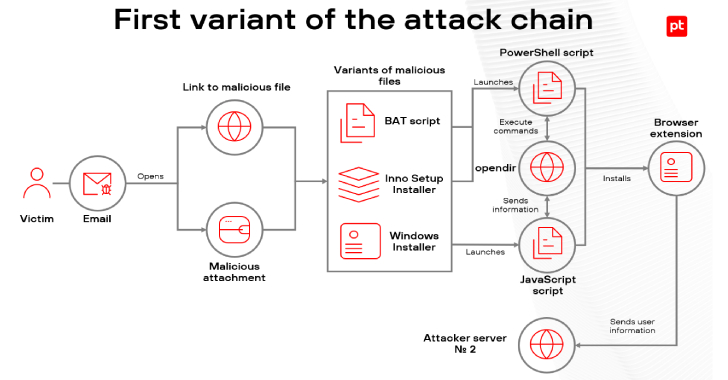
Why is ERP/WMS Redeployment Important?
In the fast-paced world of modern business, companies are continually striving for greater efficiency and agility. They invest in cutting-edge technologies, adopt new strategies, and optimize their operations to stay competitive. Enterprise Resource Planning (ERP) and Warehouse Management Systems (WMS) are two critical components of this modernization journey. However, implementing these systems is just the beginning. To maintain their effectiveness and relevance, companies often find it necessary to redeploy ERP and WMS solutions. In this article, we will delve into the reasons why ERP/WMS Redeployment is important and how it can benefit organizations in the long run.
The Ever-Changing Business Landscape
The business landscape is in a constant state of flux. Market dynamics, customer preferences, regulatory requirements, and technology trends are always evolving. In such a dynamic environment, businesses need to adapt quickly to survive and thrive. ERP and WMS systems, when initially implemented, are designed to meet specific business needs. However, as the business environment changes, these systems may become outdated or misaligned with the organization’s goals and objectives.
ERP systems, for instance, are often the backbone of an organization’s operations. They integrate various functions like finance, HR, procurement, and supply chain, streamlining processes and improving data visibility. However, over time, these systems may accumulate inefficiencies, redundant processes, or outdated functionalities that hinder an organization’s ability to respond to changing market conditions.
Similarly, WMS systems are critical for managing warehouse operations efficiently. They optimize inventory management, order fulfillment, and distribution processes. Yet, as a company’s product offerings evolve, warehouse layouts change, or customer demands shift, the existing WMS may no longer align with the new requirements, leading to operational bottlenecks and reduced efficiency.
Enhancing System Performance
One of the primary reasons for redeploying ERP and WMS systems is to enhance their performance. Over time, these systems can become sluggish due to increased data volume, complex customizations, and outdated technology. This can result in slow response times, system crashes, and user frustration.
Redeploying these systems allows organizations to:
1. Upgrade Hardware and Software:
Performance Enhancement: By deploying the latest hardware and software, organizations can significantly improve system performance. Faster processors, more memory, and advanced storage solutions can ensure that the ERP and WMS systems run smoothly even as data volume increases.
Security Improvements: Newer hardware and software often come with enhanced security features, reducing the risk of data breaches and cyberattacks.
- Streamline Processes:
Optimize Workflows: During the redeployment process, organizations have an opportunity to review and optimize their business processes. This can lead to more efficient workflows and improved productivity.
Reduce Customizations: Over-customization can often lead to system complexity and decreased performance. Redeployment provides a chance to eliminate unnecessary customizations and simplify the system.
- Enhance User Experience:
User-Friendly Interfaces: Redeployment can involve updating the user interfaces of ERP and WMS systems, making them more intuitive and user-friendly. This can boost user adoption and productivity.
Training and Support: During the redeployment, organizations can provide additional training and support to users, ensuring they can make the most of the system’s capabilities.
Adapting to Changing Business Needs
Another crucial aspect of ERP/WMS redeployment is aligning these systems with changing business needs. Organizations grow, diversify their product offerings, enter new markets, and adapt to new regulations. To remain effective, their ERP and WMS systems must evolve in tandem with these changes.
- Scalability:
Accommodate Growth: As businesses expand, their ERP and WMS systems need to accommodate larger datasets, more users, and increased transaction volumes. Redeployment can ensure that the systems can scale as needed.
Global Operations: Companies operating globally may need to adapt their ERP and WMS systems to support multi-language and multi-currency functionality. This can be achieved through redeployment.
- Integration:
New Systems and Technologies: With the advent of new technologies like IoT, AI, and blockchain, organizations may need to integrate their ERP and WMS systems with these innovations. Redeployment allows for seamless integration to harness the benefits of these technologies.
Merger and Acquisition: In cases of mergers or acquisitions, integrating disparate ERP and WMS systems becomes essential. Redeployment can facilitate a smoother transition and integration process.
- Compliance:
Changing Regulations: Regulatory requirements can change over time, necessitating updates to ERP and WMS systems. Compliance with industry-specific standards and regulations is crucial, and redeployment can help organizations stay in compliance.
Data Analytics and Business Intelligence
In today’s data-driven business landscape, organizations rely on data analytics and business intelligence to make informed decisions. ERP and WMS systems are rich sources of data that can provide valuable insights into business operations. However, outdated systems may lack the capabilities to harness this data effectively.
Redeployment of ERP and WMS systems can enable organizations to:
1. Improve Reporting:
Real-time Insights: Redeployed systems can provide real-time reporting capabilities, enabling organizations to make timely decisions based on the most up-to-date data.
Customized Dashboards: Businesses can create customized dashboards that deliver relevant insights to different stakeholders within the organization.
- Predictive Analytics:
Forecasting: Modern ERP and WMS systems can incorporate predictive analytics, helping organizations forecast demand, optimize inventory levels, and make proactive decisions. - Integration with AI and Machine Learning:
Enhanced Decision-Making: Integrating AI and machine learning into ERP and WMS systems can automate processes, detect patterns, and provide recommendations for improving efficiency and reducing costs.
Cost Efficiency
While redeployment may seem like a significant investment, it can lead to substantial cost savings in the long run. Outdated systems often require extensive maintenance and support, and their inefficiencies can lead to increased operational costs.
- Reduced Maintenance Costs:
Legacy Systems: Older ERP and WMS systems may rely on legacy technologies that are expensive to maintain. Redeployment can replace these legacy components with more cost-effective solutions.
Support and Licensing: Ongoing support and licensing fees for outdated systems can be expensive. Upgrading through redeployment can lead to more cost-effective support agreements.
- Operational Efficiency:
Streamlined Processes: Redeployment often includes process optimization, leading to more efficient operations and cost reductions.
Inventory Management: Improving WMS capabilities can result in better inventory management, reducing carrying costs and the risk of overstocking or stockouts.
- Better ROI:
Long-Term Benefits: While the initial redeployment investment may be significant, the long-term benefits, including improved performance, scalability, and data analytics, can result in a higher return on investment.
Conclusion
In today’s rapidly evolving business environment, ERP and WMS systems play a pivotal role in an organization’s success. To maintain their relevance and effectiveness, businesses must recognize the importance of redeploying these systems. By enhancing system performance, adapting to changing business needs, harnessing data analytics, and achieving cost efficiency, redeployment can be a strategic move that ensures the continued growth and competitiveness of an organization. It is not just an IT project; it is a crucial step in the evolution of modern businesses.
Contact Cyber Defense Advisors to learn more about our ERP/WMS Redeployment solutions.




